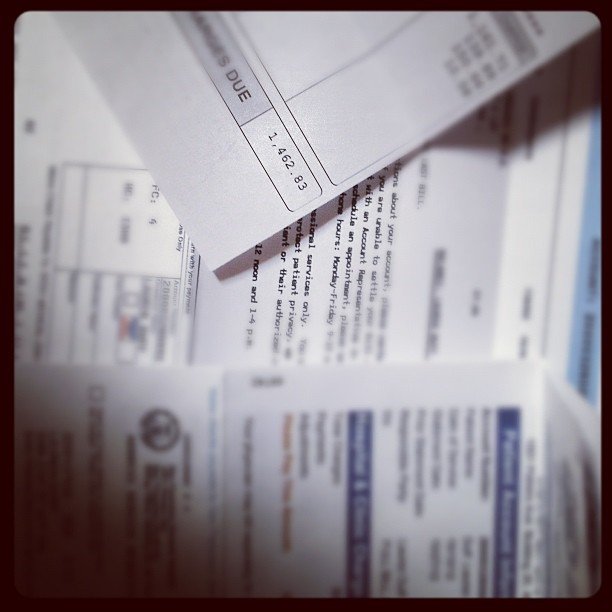

You could be excused for skipping over the piece in The New York Times the other day. After all, it did sound awfully familiar.
Here’s how the article by Tara Siegel Bernard began.
“Megan Barringer had no idea that a medical billing mix-up over a $742 charge for a back evaluation six years ago could end up costing her more than $33,000.
“But the old bill, which she ultimately paid, had gone to collections and showed up as black mark on her otherwise clean credit report. Barringer said she found out about it only when she applied for a mortgage last month and got an interest rate that was half a percentage point more than it would otherwise have been. As a result, she is paying an extra $94 a month on the $298,000 loan she took out on a three-bedroom ranch in Dallas, adding up to tens of thousands of dollars over the life of her 30-year fixed-rate mortgage.”
Unfortunately, situations like Barringer are commonplace.
The article went on to discuss how one credit score generator, VantageScore Solutions, has decided in preparing its credit reports to ignore collection actions—“more than half of which are typically tied to medical debts—as long as the collections are paid. The change is not being made out of sympathy for people like Ms. Barringer. Instead, the company found that paid collections are less accurate at predicting future defaults than looking at unpaid collections in combination with a variety of other factors, like the age of consumers’ accounts and the size of their loans.”
Ignoring credit errors is good. But wouldn’t not committing the errors in the first place be better?
Of course. And that’s where the good news comes in.
Good News Part I: “Efforts by the American Medical Association (AMA) to lead a transformation in the chaotic health insurance billing and payment system cut the number of medical claims paid incorrectly by large health insurance companies in half, according to the findings released today for the AMA’s fifth annual National Health Insurer Report Card,” boasted the AMA last summer.
That was certainly encouraging. But if you kept reading, you came to this:
“Error rates for private health insurers on paid medical claims dropped from 19.3% in 2011 to 9.5% in 2012.”
That means that one in 10 claims STILL had an error.
It has been a long time since I took statistics, but I think the term for this size error rate is YIKES!
And that’s where the second piece of good news comes in and it stems from an extremely unlikely source.
Congress May Finally Do Something Right
There’s at least one thing Congressional Republicans and Democrats agree on, and it’s that medical debt is a problem. Members of Congress and their staff recognize that medical bills are confusing and prone to errors—and the debts can hurt creditworthy consumers by constraining their access to credit.
In recent years, attempts at much-needed reforms have fallen flat. Fortunately, the cause is gaining support on a number of fronts and there are (finally) signs Congress may be preparing to act. Medical debt is quite possibly the issue that could revive—at least temporarily—the Congressional bipartisan spirit. You need to look no further than the House Financial Services Committee.
In April, Rep. Maxine Waters (D-Calif.), the Committee’s ranking member, recently introduced H.R. 1767–the Medical Debt Responsibility Act of 2013. The legislation would help Americans who have seen their credit scores drop due to medical bills.
Committee Chairman Jeb Hensarling (R-Texas) and his Vice Chairman Gary Miller (R-Calif.), are said to be working on their own plan.
We can hope going forward the only place we will be able to read about someone’s credit score being damaged by a simple mistake will be in history books.
Originally published on Forbes.com









